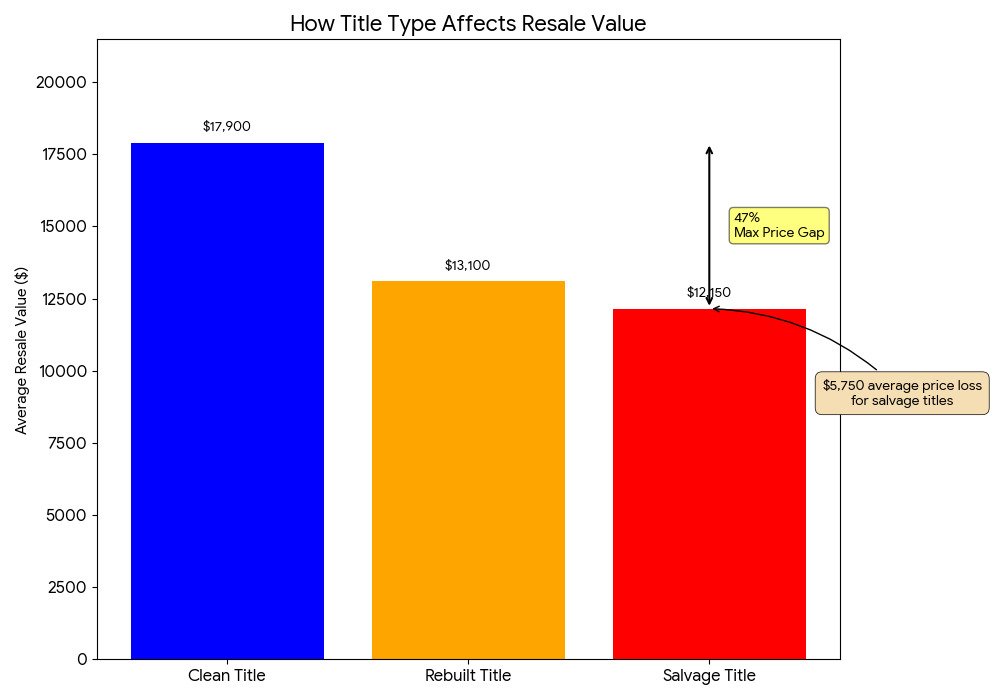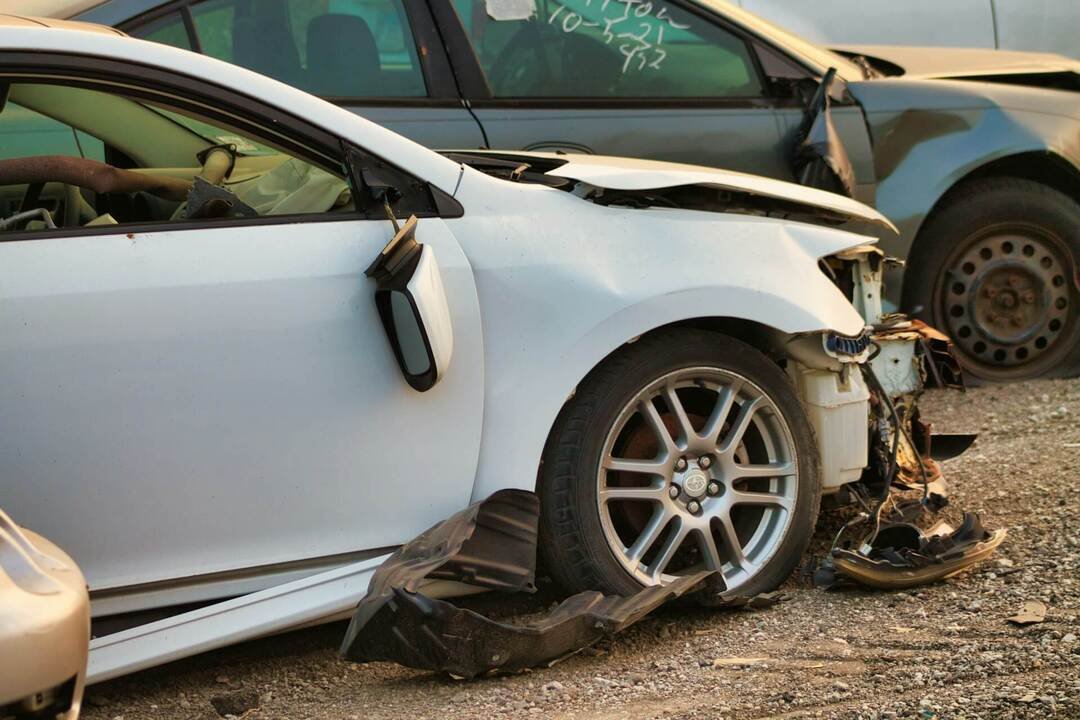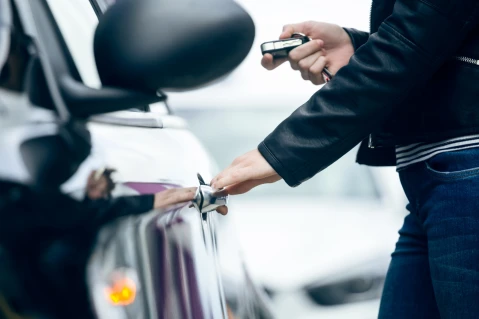A clean title means the vehicle hasn’t been declared a total loss by an insurance company and shows no official record of major damage, salvage branding, or theft. However, it doesn’t guarantee the car is problem-free. Issues like flood damage or unreported accidents may never appear on the title, which is why a free car vin check can help add an extra layer of confidence before making a decision. So, you’ll review what clean titles really mean and how to avoid costly surprises.
What Is a Vehicle Title and Why Does It Matter?
A vehicle title is the official document that proves legal ownership of the car, and without it, you can’t register, insure, finance, or legally sell a vehicle.
Each title includes key info like the owner’s name, the VIN (Vehicle Identification Number), and the car’s year, make, and model. But more importantly, it may also reveal red flags: open liens, branding like “salvage” or “rebuilt,” or a mismatch between seller and owner — all of which can derail your deal or cost you later.
Buying or selling a car without properly checking the title is like signing a contract blindfolded.
Also, if the car is financed, the lender will be listed as a lienholder — meaning you can’t legally sell or trade in the vehicle until the loan is paid off and the title is cleared.
Quick Takeaways:
- You need the title to prove and transfer ownership.
- A clean, clear title is key to avoiding fraud or DMV issues.
- Always double-check for liens, name mismatches, or title brands.
- If the title is missing or unclear, walk away or investigate thoroughly.
What Does a Clean Title Mean?
A clean title means the vehicle has never been declared a total loss by an insurance company and shows no official record of severe damage, theft, or salvage branding. It’s often called a clean green title. The reason is its color in many states.
The main attributes of a clean title
- The vehicle has not been declared a total loss by an insurance company.
- No major flood, fire, or structural damage has been officially recorded.
- The car was not stolen or written off.
- There are no branded records from previous claims.
- The ownership history appears consistent and legally valid.
Types of Vehicle Titles Compared

| Title Type | Meaning | Impact on Value & Use |
| Clean Title | No history of significant damage or insurance total loss | Higher resale value, easier to insure and finance |
| Salvage Title | Issued when a car suffers significant damage and is deemed a total loss | Harder to insure; resale profit drops sharply |
| Rebuilt Title | Previously a salvage car, now repaired and inspected | Can be driven, but often raises red flags for buyers and insurers |
| Flood Title | Vehicle damaged by water, often from storms or hurricanes | Electrical issues and corrosion risk; resale and safety concerns |
| Lemon Title | Given to cars with repeated, unfixable defects | Manufacturer buyback history; typically hard to resell |
| Junk Title | Issued for cars beyond repair, usually sold for parts only | Not legally drivable or eligible for registration |
Clean Title vs. Salvage and Rebuilt: When the Line Gets Blurry
The difference between a clean title and a rebuilt title isn’t always black and white. Some sellers may repair a salvage car, pass a state inspection, and rebrand it with a rebuilt title. Still, the underlying damage remains. Wondering how to tell if a car title is clean or salvage? Start by decoding the title’s status directly through DMV records or using trusted vehicle history tools. Even clean titles can be misleading if title washing occurs. Always inspect closely before assuming a vehicle’s past is as spotless as the paperwork.
According to EpicVIN's market data from Q1 2025:
- Clean title vehicles sell for an average of $5,750 more than similar models with salvage titles.
- Rebuilt title vehicles retain only 73% of their clean-title resale value on average.
- In high-demand segments (e.g., SUVs and hybrids), the price gap can exceed 47% depending on damage history and region.

Benefits of Buying a Car With a Clean Title
Having a clean title in hand offers peace of mind and practical advantages, especially when compared to common branded titles tied to a salvage vehicle or serious past damage.
Key benefits include:
- Easier approval for an auto loan from most lenders.
- Fewer complications when registering or getting a new title in another state.
- Lower insurance risk and more complete coverage options.
- Helps avoid buying a lemon with hidden damage.
- Smoother process when trading in or selling to dealerships.
- Better chances of long-term reliability and ownership satisfaction.
Does a Clean Title Guarantee a Problem-Free Car?
A shocking stat-based insight: 1 in 14 clean-title vehicles contains hidden damage, according to EpicVIN’s research.
A clean title doesn’t guarantee a clean history. It simply means the vehicle hasn’t been officially reported as a total loss. But damage not filed through insurance — or repaired privately — may never make it to the title.
Some common scenarios include:
- The car was in an accident, but repairs were paid out-of-pocket.
- It sustained flood damage in a state with poor reporting laws.
- Cosmetic repairs were done just well enough to hide deeper issues.
- The vehicle was used commercially and saw heavy wear, but never totaled.
That’s why it’s smart to use the VIN decoder before buying — it can reveal hidden damage, title transfers, or auction records you won’t see on the surface.
How Clean Titles Affect Vehicle Depreciation
A clean title helps preserve resale value, but it’s not the only factor. Vehicles with clean titles typically depreciate 15–25% slower than salvage or rebuilt-title vehicles, especially within the first 3 years of ownership.
What Affects Depreciation Even with a Clean Title
- Mileage: A car with 90,000+ miles will lose value faster, clean title or not.
- Prior Use (Fleet or Rental): Fleet vehicles often carry clean titles but show signs of heavy wear, reducing resale appeal.
- Maintenance History: Missing service records can hurt perceived value, even if the title is clear.
- Brand & Segment: Some vehicles (e.g., Toyota Camry, Honda Civic) retain value better than luxury or electric models due to broader demand and lower repair costs.
Clean Title and Insurance

Car insurance providers generally prefer vehicles with a clean title because they carry lower risk. Still, if the car was previously significantly damaged but not reported, that history can limit your coverage options.
Insurers consider several factors when evaluating clean title new cars or used vehicles:
- Vehicle age and mileage
- Accident and repair history
- Results from physical inspection
- Market value at the time of coverage
- Risk of undisclosed damage
- Geographic risk (flood-prone or high-theft areas)
Clean Title Insurance Snapshot (Q1 2025)
| Title Type | Avg. Annual Premium | Full Coverage Approval Rate |
| Clean Title | $1,145 | 93% |
| Rebuilt Title | $1,323 | 61% |
| Salvage Title | Limited Availability | 42% |
Takeaway: Clean-title cars are not only cheaper to insure — they’re also more likely to qualify for comprehensive coverage.
How to Check If a Car Has a Clean Title

Intending to verify whether a vehicle has a clean car title? Consider starting with a car title check. Address your state DMV or an authorized provider. Don’t forget to order a vehicle history report using a trusted VIN decoder. The tool reveals past title brands, mileage inconsistencies, and accident history. Being aware of how to tell if a car title is clean or salvage can save you from major financial mistakes.
Red Flags Even When the Title Says “Clean”
| Red Flag | What It Might Indicate |
| Mismatched VINs | Possible tampering or frame replacement |
| Gaps in ownership history | Unreported damage or hidden repairs |
| Fresh paint or bodywork | Covered-up signs of significant accidents |
| Quick resale after recent purchase | Flipping of questionable vehicles |
| Out-of-state title transfers | Risk of title washing |
| Missing service records | Neglect or concealed mechanical issues |
How Title Washing Happens and How to Spot It
Title washing is an illegal process used to hide a car’s branded history, such as a salvage vehicle, flood damage, or major structural repairs. It happens when a car is registered in a different state that doesn’t recognize certain title brands, giving it a fresh appearance on paper.
Some states have been known for loopholes in title branding laws, making them targets for title washing. These include:
- Mississippi
- Vermont
- New Jersey
- Washington
- Virginia
To protect yourself, follow these steps:
- Compare the title issue date and state with the vehicle’s accident or damage date.
- Look for unusual gaps or sudden location changes in the ownership timeline.
- Use a car title check that includes insurance totals, damage events, and auction records.
- Run the VIN through multiple databases, not just one, to catch inconsistencies.
- Be suspicious of reconstructed titles issued shortly after major reported damage.
Summary
Further reading
Still wondering, what is a clean title? When buying a used car, grasping this can help you avoid costly surprises. A clean car title means no major damage has been officially recorded. Nonetheless, it doesn’t guarantee the vehicle is flawless. Some cars hide serious issues that never make it to the paperwork. A salvage title means the cost of repairs exceeds the vehicle’s value. However, not all problems result in title branding. Therefore, a thorough inspection and a trusted VIN check are critical. Don’t rely on the title alone. Take the time to analyze the car’s true condition before you buy.
Frequently Asked Questions
The timeline differs in different states. Also, consider whether the vehicle previously had a salvage or rebuilt status. As a rule, once the car passes inspection and required documents are submitted, it takes 2 to 6 weeks for the DMV to issue the updated title. Some states offer expedited processing for an additional fee.
Yes. Request a title copy from the seller and use a national vehicle history report service to track its status across multiple states.
The damage might not have been reported to insurance. Alternatively, it might not have met state thresholds. In such situations, it won’t appear on official records. Have the vehicle inspected by a professional. Only in this case will you know the car’s exact history.
Low pricing can be a result of high mileage, cosmetic issues, outdated tech, or unreported accidents. In some cases, the seller may be rushing to unload a vehicle with mechanical problems that haven’t triggered formal title branding.
Yes, but not all auction cars are trouble-free. Some have been repossessed, returned after lease, or inherited. Always review the vehicle’s background, inspect it in person if possible, and confirm title status before bidding.







